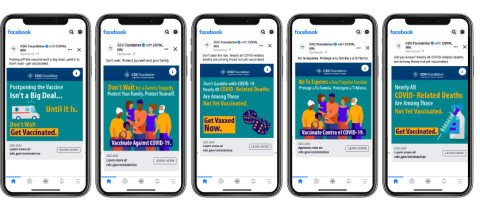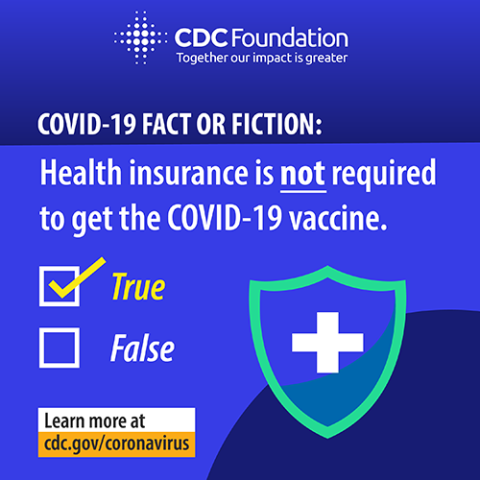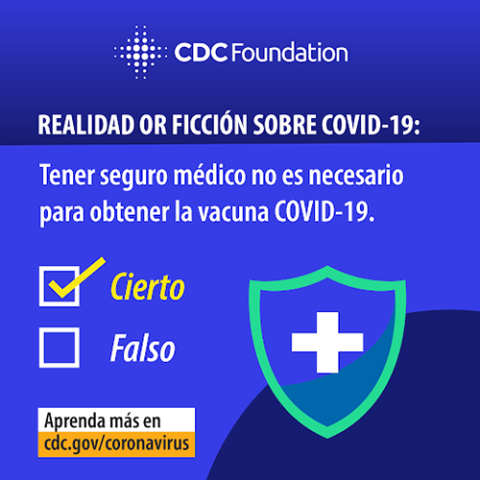
COMMUNITY COVID COALITION
As cases of COVID-19 began surging in the United States in 2020, public health officials quickly realized they would need to work together to combat the spread of the pandemic. While the effort was national, the front lines of the campaign against COVID-19 were often drawn in small communities, where diverse populations were often most at risk and access to health-related information services more limited.
In 2020, the CDC Foundation responded to this need by forming the Community COVID Coalition. With support from Meta, the CDC Foundation partnered with the National Governors Association (NGA), the Association of State and Territorial Health Officials (ASTHO) and the Association of Immunization Managers (AIM) to help states educate their diverse communities about the importance of contact tracing and its role in slowing the spread of COVID-19. Through Phase I of the partnership, from June 2020 through October 2021, the coalition also developed an online hub of publicly available resources for communication around contact tracing, including research, communication tools, public service announcements and social media assets.

As COVID-19 vaccines became available, the coalition focused Phase II of their partnership on addressing vaccine hesitancy in all adults ages 18-24 and Black/African American and Latino/a/x adults ages 25-39. With a formal project expansion in September 2021, the coalition was able to continue the partnership with ASTHO while also engaging the Association of Immunization Managers (AIM) and the National Public Health Information Coalition (NPHIC), who helped develop technical assistance webinars. During Phase II, the coalition also directly funded 25 community-based organizations (CBOs) doing COVID-19 vaccination communication work. These partnerships allowed the coalition to disseminate campaign resources more widely and reach a broader and more diverse audience at a critical time.
The Community COVID Coalition project was a unique public-private partnership strongly committed to behavior change through communications, including researching, message testing and COVID-19 social media campaigns. By partnering with CBOs representing diverse communities and areas of the country, coalition members were able to reach those not yet vaccinated with messaging to help overcome vaccine hesitancy, while donated ad credits from Meta allowed the team to run campaigns with every CBO in the cohort. Campaign metrics indicate that the assets developed under this model performed better than expected compared to other national COVID-19 campaigns.
The use of this model in the midst of the ongoing pandemic, shows that CBOs can in the future use comprehensive technical assistance to promote public health protection measures through social media, and that communications campaigns with a strong research base can have a critical impact with these CBO constituents. As future pandemics are certain, such campaigns can serve as a model for efforts to spread critical health information rapidly to save lives.
Examples of social media posts
developed for individuals aged 18-24

